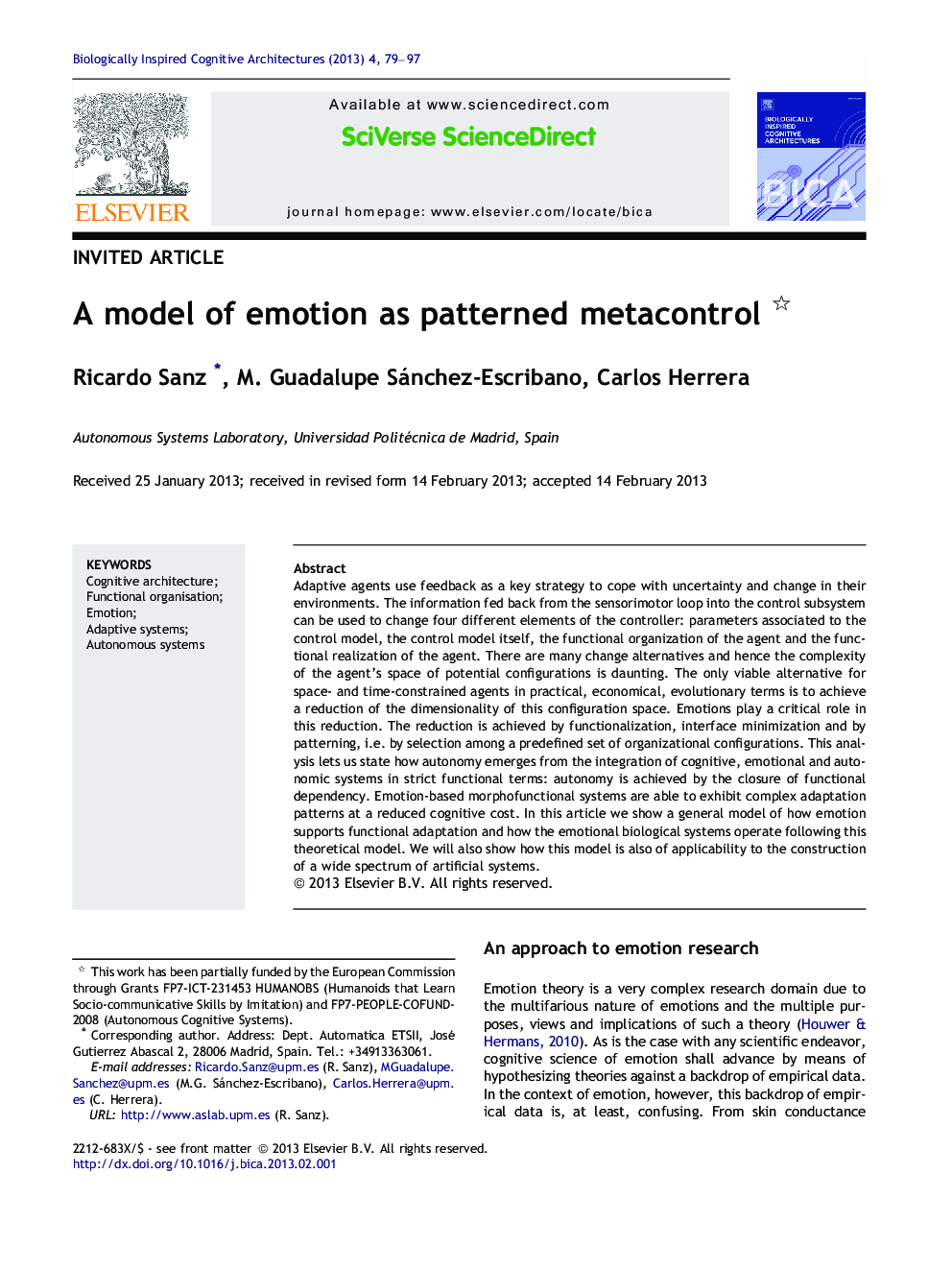| کد مقاله | کد نشریه | سال انتشار | مقاله انگلیسی | نسخه تمام متن |
|---|---|---|---|---|
| 378334 | 659018 | 2013 | 19 صفحه PDF | دانلود رایگان |

Adaptive agents use feedback as a key strategy to cope with uncertainty and change in their environments. The information fed back from the sensorimotor loop into the control subsystem can be used to change four different elements of the controller: parameters associated to the control model, the control model itself, the functional organization of the agent and the functional realization of the agent. There are many change alternatives and hence the complexity of the agent’s space of potential configurations is daunting. The only viable alternative for space- and time-constrained agents in practical, economical, evolutionary terms is to achieve a reduction of the dimensionality of this configuration space. Emotions play a critical role in this reduction. The reduction is achieved by functionalization, interface minimization and by patterning, i.e. by selection among a predefined set of organizational configurations. This analysis lets us state how autonomy emerges from the integration of cognitive, emotional and autonomic systems in strict functional terms: autonomy is achieved by the closure of functional dependency. Emotion-based morphofunctional systems are able to exhibit complex adaptation patterns at a reduced cognitive cost. In this article we show a general model of how emotion supports functional adaptation and how the emotional biological systems operate following this theoretical model. We will also show how this model is also of applicability to the construction of a wide spectrum of artificial systems.
Journal: Biologically Inspired Cognitive Architectures - Volume 4, April 2013, Pages 79–97